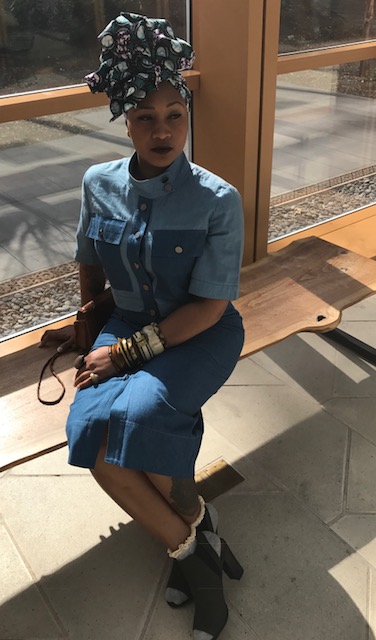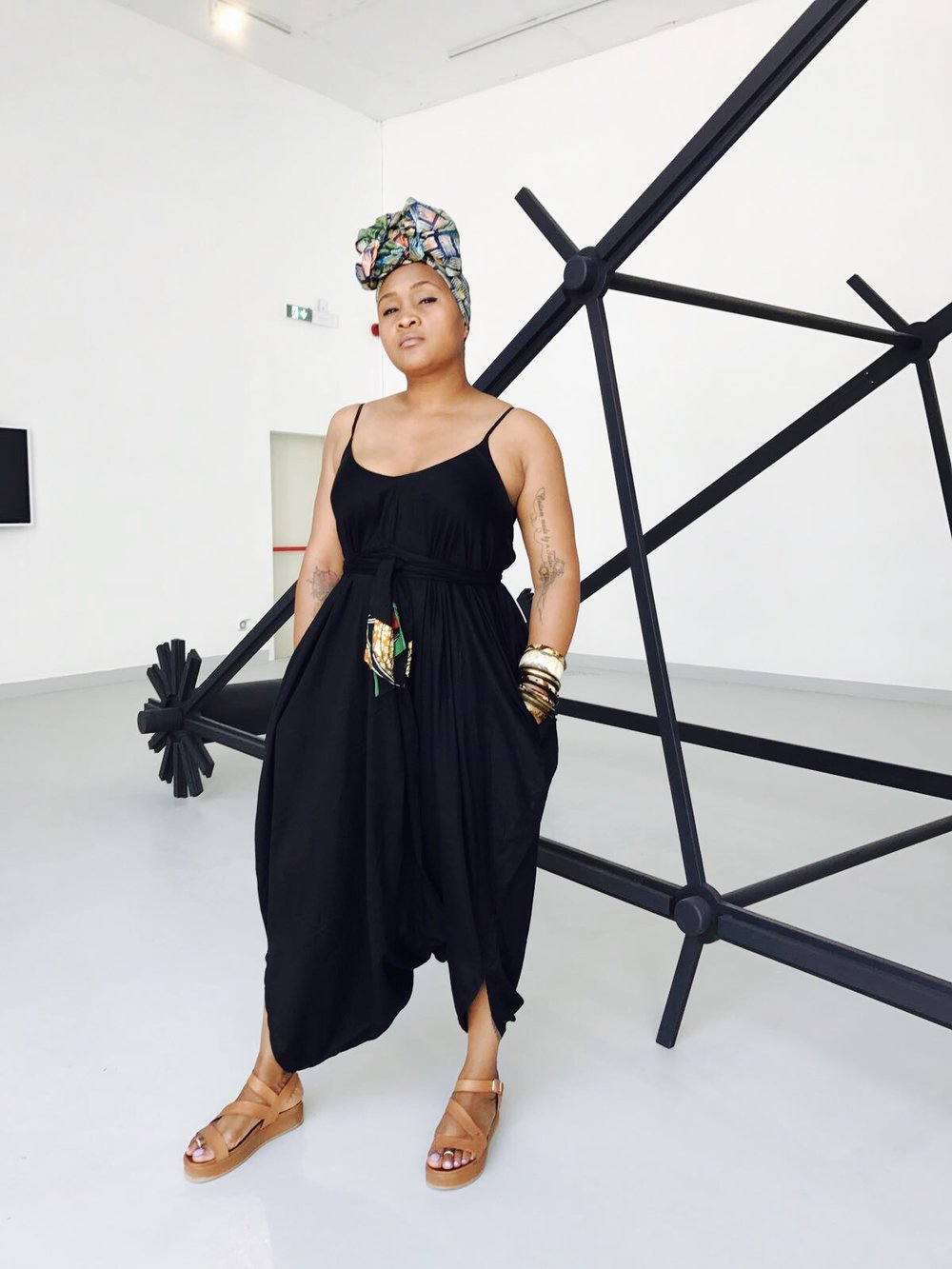IDSVA David Driskell Fellow Profile: Natalya Mills-Mayrena
November 14, 2017
by Eric Bess, Cohort ’16
Natalya grew up in Trinidad and her family was actively engaged in this epicenter of Caribbean fashion. Her Mother was a fashionista, her Grandfather an artist, and her Grandmother a tailor. They played a significant role in developing Natalya’s eye for fashion and art while the Caribbean landscape provided her with a dazzling array of color. With this rich tapestry her individuality found its diverse expression in fashion, though often expressed as an homage to the effect of a wider cultural influence. Even now, as a resident in New York, Carnival and mas — a group display of extravagant costume and dance to music — fail to exhaust their powerful and playful effect upon her.

These childhood experiences resulted in a love and passion for the historical implications of personal expression through fashion. For Natalya, fashion is not only functional. It is not confined to the domain of utility. Instead, it is function masquerading as beauty. It is the aestheticization of utility, the ends of work as the expression of spirit. It is the unification of individuality and community, the influence of the one upon the other and the latter’s expression as respect to the former.
She shares this love and passion in the classroom where she serves as Adjunct Professor at CUNY Brooklyn College in the Africana Department teaching Caribbean Carnivals: History, Resistance and Performance. Her students leave her class aware of fashion as not only aestheticized utility, but also as a means of crossing borders and as the hospitality of communicating and sharing with the other.

Her time at IDSVA has deepened her understanding of the philosophical role fashion can and does have historically. It has allowed her to determine, for herself, the narrative that fashion suggests and how that narrative can and should be uttered especially in respect to its role in representing the black body and experience. Natalya accepts this great honor with such humility. She is humbled by the influence David Driskell has had on so many people and aspires to live and to give as he does and to represent — through deeds, speech, and fashion — the spirit that animates life.
